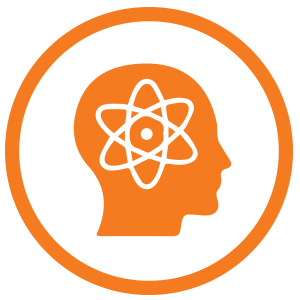Clinical and Counseling Psychologists
What They Do: Assess, diagnose, and treat mental and emotional disorders of individuals through observation, interview, and psychological tests. Help individuals with distress or maladjustment understand their problems through their knowledge of case history, interviews with patients, and theory. Provide individual or group counseling services to assist individuals in achieving more effective personal, social, educational, and vocational development and adjustment. May design behavior modification programs and consult with medical personnel regarding the best treatment for patients.
Also Called: Case ManagerClinical PsychologistCounseling PsychologistCounselorLicensed Clinical PsychologistLicensed PsychologistLPC (Licensed Professional Counselor)PsychologistPsychotherapistTherapist
Resource Details
On The Job
- Conduct assessments of patients' risk for harm to self or others.
- Document patient information including session notes, progress notes, recommendations, and treatment plans.
- Identify psychological, emotional, or behavioral issues and diagnose disorders, using information obtained from interviews, tests, records, or reference materials.
- Write reports on clients and maintain required paperwork.
- Counsel individuals, groups, or families to help them understand problems, deal with crisis situations, define goals, and develop realistic action plans.

Technology Skills

| Name | Example |
|---|---|
| Medical software |
|
| Video conferencing software |
|
| Analytical or scientific software |
|
| Spreadsheet software |
|
| Word processing software |
|
Tools Used
| Name | Example |
|---|---|
| Notebook computers |
|
| High capacity removable media drives |
|
| Electromyography EMG units |
|
| Desktop computers | |
| Personal computers |

 Knowledge
Knowledge
| Name | description |
|---|---|
| Psychology | Knowledge of human behavior and performance; individual differences in ability, personality, and interests; learning and motivation; psychological research methods; and the assessment and treatment of behavioral and affective disorders. |
| Therapy and Counseling | Knowledge of principles, methods, and procedures for diagnosis, treatment, and rehabilitation of physical and mental dysfunctions, and for career counseling and guidance. |
| English Language | Knowledge of the structure and content of the English language including the meaning and spelling of words, and rules of composition and grammar. |
| Education and Training | Knowledge of principles and methods for curriculum and training design, teaching and instruction for individuals and groups, and the measurement of training effects. |
| Customer and Personal Service | Knowledge of principles and processes for providing customer and personal services. This includes customer needs assessment, meeting quality standards for services, and evaluation of customer satisfaction. |
 Skills
Skills
| Name | description |
|---|---|
| Reading Comprehension | Understanding written sentences and paragraphs in work-related documents. |
| Social Perceptiveness | Being aware of others' reactions and understanding why they react as they do. |
| Active Listening | Giving full attention to what other people are saying, taking time to understand the points being made, asking questions as appropriate, and not interrupting at inappropriate times. |
| Critical Thinking | Using logic and reasoning to identify the strengths and weaknesses of alternative solutions, conclusions, or approaches to problems. |
| Writing | Communicating effectively in writing as appropriate for the needs of the audience. |
 Abilities
Abilities
| Name | description |
|---|---|
| Oral Expression | The ability to communicate information and ideas in speaking so others will understand. |
| Written Comprehension | The ability to read and understand information and ideas presented in writing. |
| Oral Comprehension | The ability to listen to and understand information and ideas presented through spoken words and sentences. |
| Problem Sensitivity | The ability to tell when something is wrong or is likely to go wrong. It does not involve solving the problem, only recognizing that there is a problem. |
| Written Expression | The ability to communicate information and ideas in writing so others will understand. |

Work Activities
| Name | description |
|---|---|
| Establishing and Maintaining Interpersonal Relationships | Developing constructive and cooperative working relationships with others, and maintaining them over time. |
| Making Decisions and Solving Problems | Analyzing information and evaluating results to choose the best solution and solve problems. |
| Assisting and Caring for Others | Providing personal assistance, medical attention, emotional support, or other personal care to others such as coworkers, customers, or patients. |
| Documenting/Recording Information | Entering, transcribing, recording, storing, or maintaining information in written or electronic/magnetic form. |
| Getting Information | Observing, receiving, and otherwise obtaining information from all relevant sources. |

Detailed Work Activities
- Evaluate patient functioning, capabilities, or health.
- Record research or operational data.
- Diagnose neural or psychological disorders.
- Prepare scientific or technical reports or presentations.
- Counsel clients on mental health or personal achievement.
Work Context
| Name | description |
|---|---|
| Face-to-Face Discussions with Individuals and Within Teams | How frequently does your job require face-to-face discussions with individuals and within teams? |
| Spend Time Sitting | How much does this job require sitting? |
| Determine Tasks, Priorities and Goals | How much freedom does the worker have in determining the tasks, priorities, or goals of the job? |
| How frequently does your job require you to use E-mail? | |
| Freedom to Make Decisions | How much decision making freedom, without supervision, does the job offer? |
Job Zone
- Title:Job Zone Five: Extensive Preparation Needed
- Education:Most of these occupations require graduate school. For example, they may require a master's degree, and some require a Ph.D., M.D., or J.D. (law degree).
- Related Experience:Extensive skill, knowledge, and experience are needed for these occupations. Many require more than five years of experience. For example, surgeons must complete four years of college and an additional five to seven years of specialized medical training to be able to do their job.
- Job Training:Employees may need some on-the-job training, but most of these occupations assume that the person will already have the required skills, knowledge, work-related experience, and/or training.
- Job Zone Examples:These occupations often involve coordinating, training, supervising, or managing the activities of others to accomplish goals. Very advanced communication and organizational skills are required. Examples include pharmacists, lawyers, astronomers, biologists, clergy, physician assistants, and veterinarians.
- Specific Vocational Preparation Scale Range:(8.0 and above)
Education
- Post-doctoral training
Percentage of Respondents:48
- Doctoral degree
Percentage of Respondents:44
- Master's degree
Percentage of Respondents:8

Interests
| Name | description |
|---|---|
| Social | Work involves helping, teaching, advising, assisting, or providing service to others. Social occupations are often associated with social, health care, personal service, teaching/education, or religious activities. |
| Investigative | Work involves studying and researching non-living objects, living organisms, disease or other forms of impairment, or human behavior. Investigative occupations are often associated with physical, life, medical, or social sciences, and can be found in the fields of humanities, mathematics/statistics, information technology, or health care service. |
Work Styles
| Name | description |
|---|---|
| Concern for Others | Job requires being sensitive to others' needs and feelings and being understanding and helpful on the job. |
| Integrity | Job requires being honest and ethical. |
| Self-Control | Job requires maintaining composure, keeping emotions in check, controlling anger, and avoiding aggressive behavior, even in very difficult situations. |
| Dependability | Job requires being reliable, responsible, and dependable, and fulfilling obligations. |
| Stress Tolerance | Job requires accepting criticism and dealing calmly and effectively with high-stress situations. |

Work Values
| Name | description |
|---|---|
| Relationships | Occupations that satisfy this work value allow employees to provide service to others and work with co-workers in a friendly non-competitive environment. Corresponding needs are Co-workers, Moral Values and Social Service. |
| Independence | Occupations that satisfy this work value allow employees to work on their own and make decisions. Corresponding needs are Creativity, Responsibility and Autonomy. |
| Achievement | Occupations that satisfy this work value are results oriented and allow employees to use their strongest abilities, giving them a feeling of accomplishment. Corresponding needs are Ability Utilization and Achievement. |
Related Occupations
Job Outlook
- Description : New job opportunities are very likely in the future.
Category : Bright
Bright Outlook :
- Description : This career will grow rapidly in the next few years.
Category : Grow Rapidly
Salary :
| Annual 10th percentile | Annual median | Annual 90th percentile | Hourly 10th percentile | Hourly median | Hourly 90th percentile |
| $50470 | $95830 | $170150 | $24.26 | $46.07 | $81.8 |

